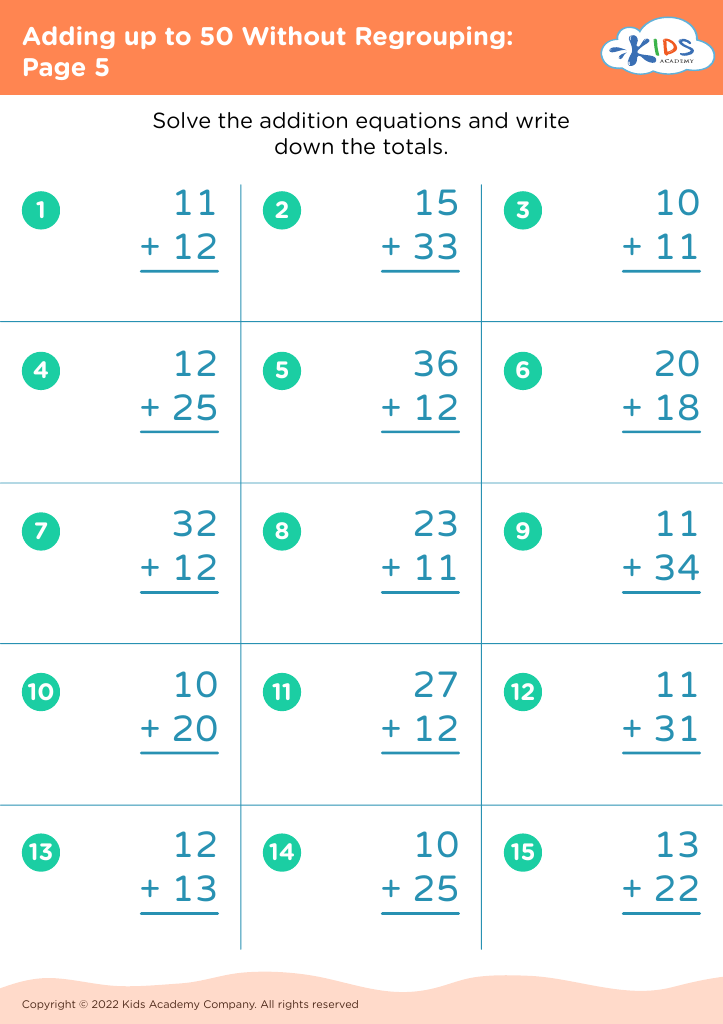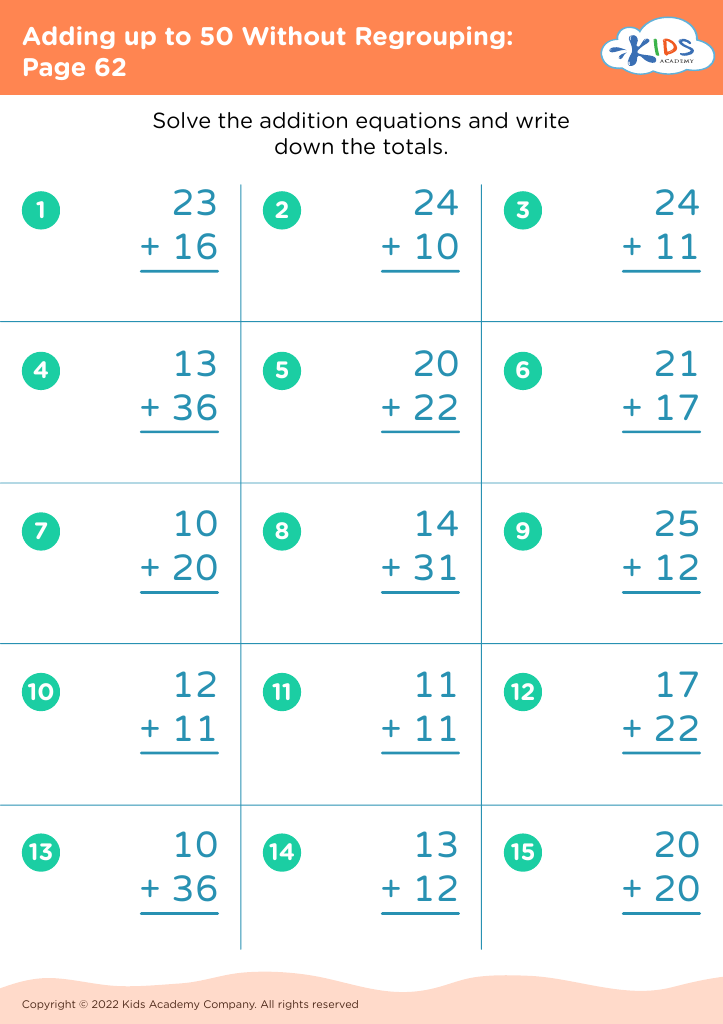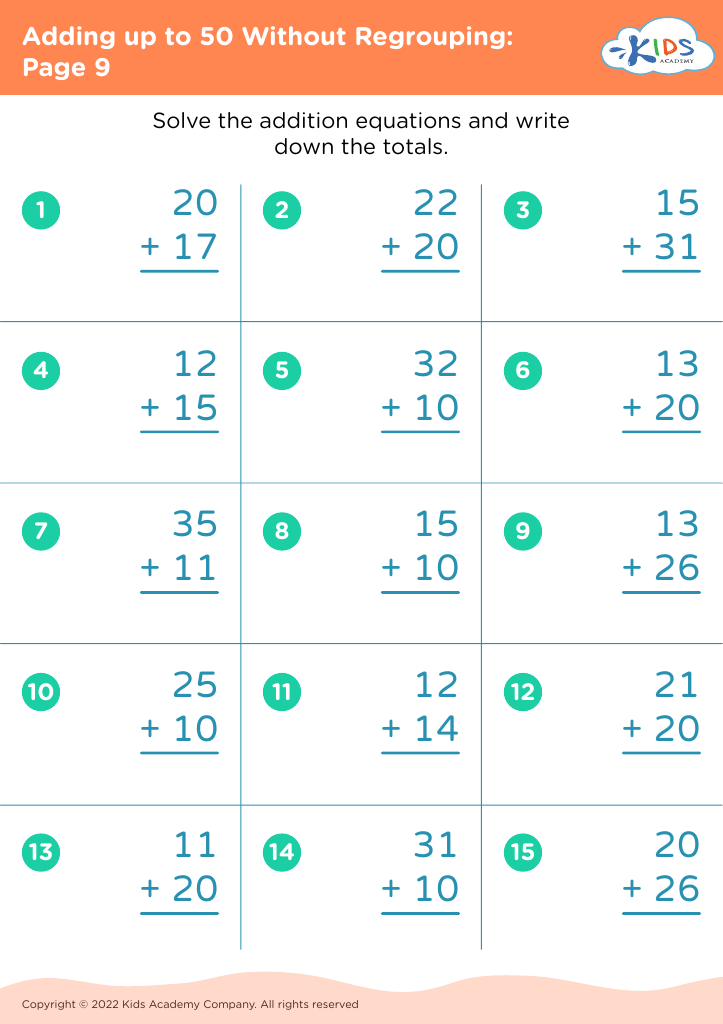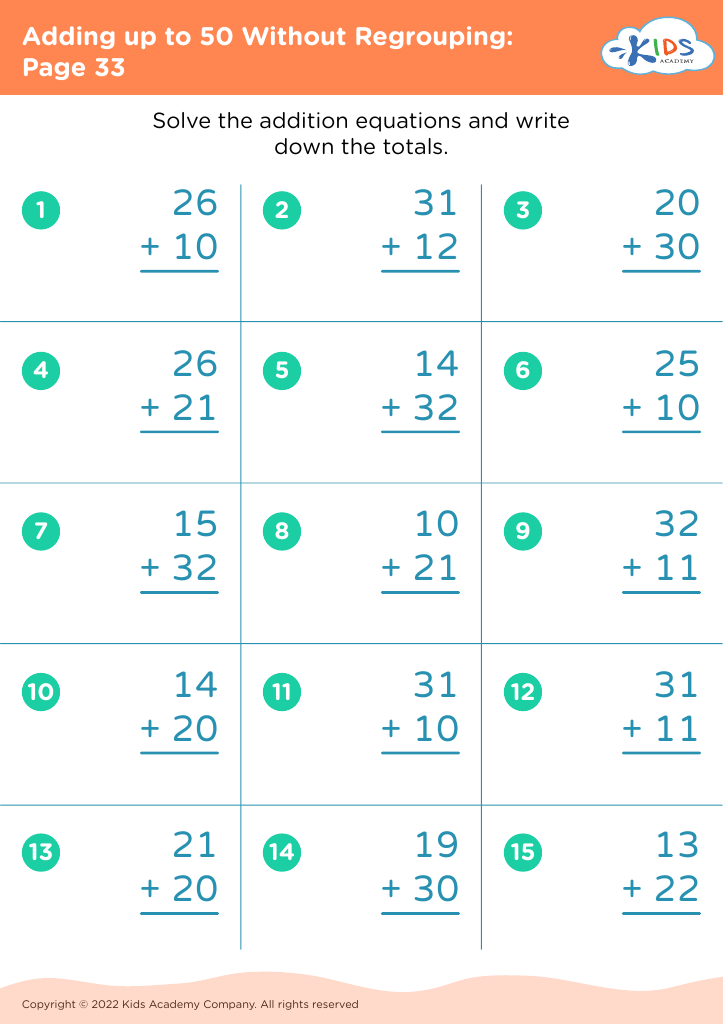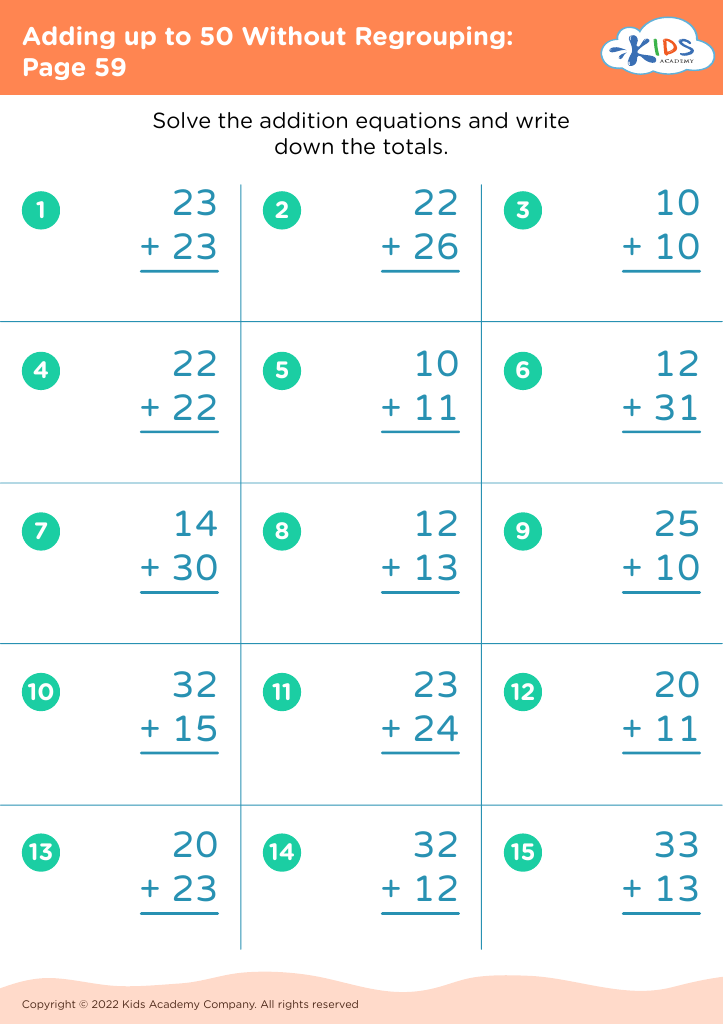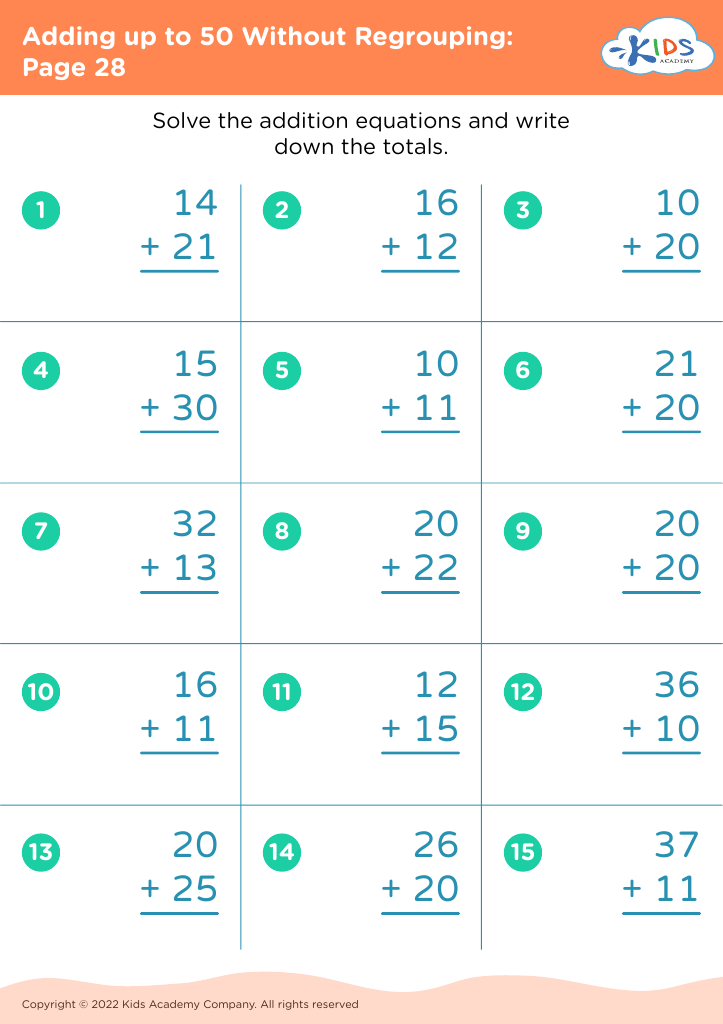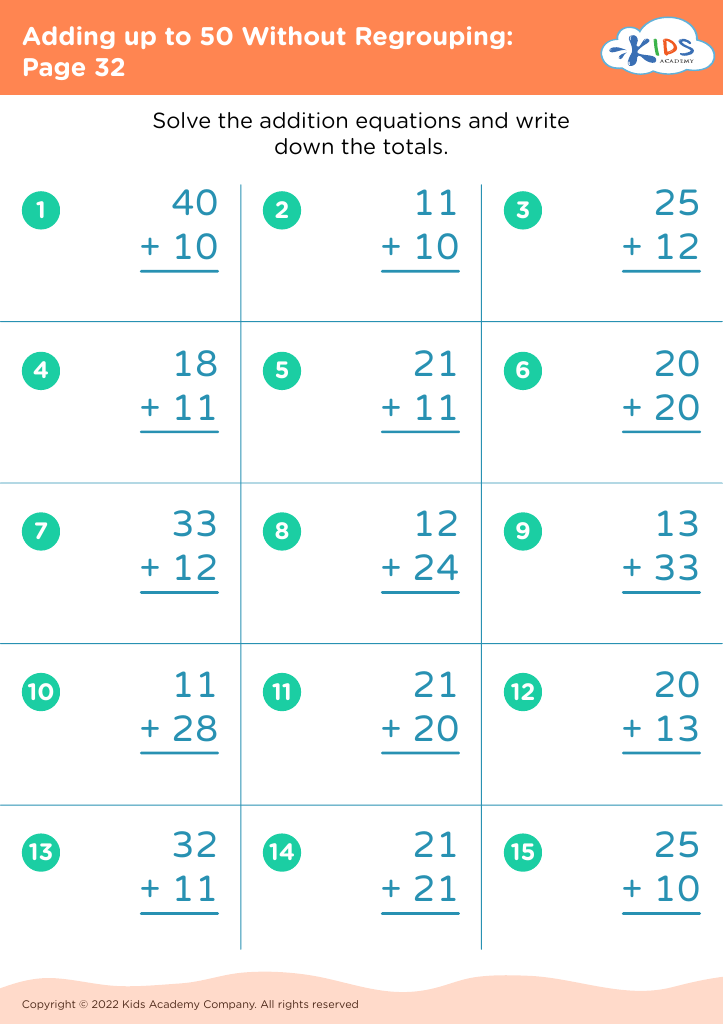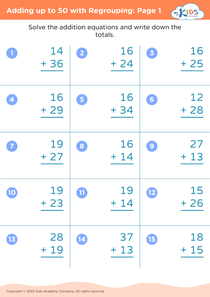Number Recognition Adding up to 50 Without Regrouping Worksheets for 8-Year-Olds
15 filtered results
-
From - To
Enhance your 8-year-old's number recognition skills with our engaging worksheets focused on adding up to 50 without regrouping. These meticulously designed activities help young learners build confidence in their math abilities through fun and interactive practice. Each worksheet provides a variety of problems that challenge students to recognize and combine numbers effectively. Whether in the classroom or at home, these resources are perfect for reinforcing essential math skills while making learning enjoyable. Help your child master addition in a stress-free environment, paving the way for future math success. Explore our collection today and support your child's academic growth!
Number recognition and understanding how to add numbers up to 50 without regrouping are foundational skills for 8-year-olds that have lasting impacts on their mathematical development. First, number recognition helps children identify and differentiate between numbers, forming the basis for all future math concepts. It nurtures confidence, enabling students to tackle more complex mathematical operations as they progress in their education.
Adding up to 50 without regrouping develops a child's proficiency in basic arithmetic. Mastery of single-digit sums and mental math fosters a sense of numerical fluency and improves problem-solving skills essential for daily life tasks like budgeting or cooking. Teachers and parents should emphasize these skills to strengthen children's cognitive abilities, laying the groundwork for advanced concepts, such as multiplication, division, and fractions.
Moreover, fostering these skills enhances children's overall academic performance. Most standardized tests include arithmetic questions that build on these foundational skills, making early mastery crucial for future academic success. Encouraging a strong grasp of number recognition and basic addition not only paves the way for mathematical understanding but also cultivates a positive attitude towards learning, enabling children to approach math with curiosity and confidence throughout their academic journey.




